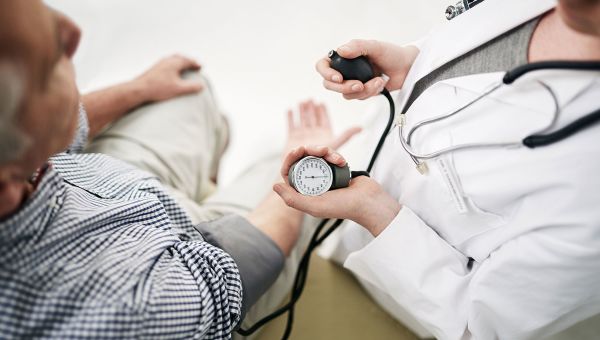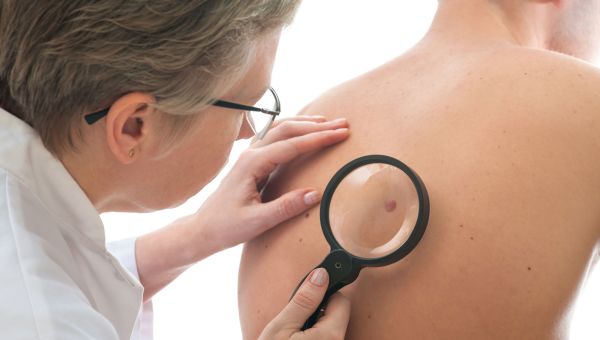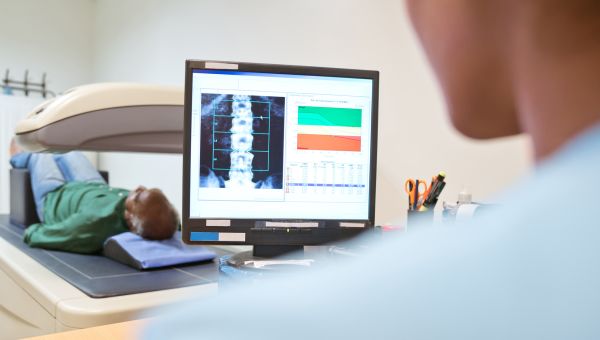Essential health tests for men at any age
Track your health with these screening tests.

It’s never too early—or too late—to start preventive care. Men may hate going to the doctor, but they’re doing themselves and their loved ones a disservice if they don’t go. “One of the most important things for men’s health is for men to show up to the doctor and not let the fear of what might be keeping them from preventive care,” says Christopher Holloway, MD, a primary care physician with TriStar Southern Hills Medical Center in Nashville, Tennessee. “Early detection is best because it gives you a significant survival benefit.” Here are the most important health tests for men, no matter their age.

When Screenings Start
Family history and other risk factors have a big impact on what doctors will screen you for, and when, according to Dr. Holloway. If you follow the guidelines for colorectal cancer, for example, screenings for most individuals will begin at age 45 or 50. “We might or might not perform an EKG on a man in his 20s, but that’s dictated by symptoms and family history," he says. "We might or might not begin digital rectal exam screenings for prostate cancer in the 40s.”

Cholesterol and Blood Pressure Screenings
Unhealthy cholesterol levels and high blood pressure are two of the biggest contributors to atherosclerosis, which can cause a stroke or heart attack. To get a handle on both your cholesterol and blood pressure levels, have them checked regularly, starting at age 20 and continuing throughout your life, according to Holloway.

Blood Glucose Screening
About 15.3 million men had diabetes in 2015, according to the Centers for Disease Control and Prevention (CDC). That’s 400,000 more men than women. The US Preventive Services Task Force (USPSTF) recommends blood sugar screening for overweight or obese people aged 40 to 70 (both men and women). The American Diabetes Association (ADA) suggests being screened at 45 if you don't have risk factors for diabetes, including being overweight, a family history or a sedentary lifestyle. If you do, the ADA recommends being screened earlier. An A1C test, a fasting plasma glucose test or an oral glucose tolerance test can all be used to screen for diabetes.
Using a blood glucose tracker, like the one available on Sharecare for iOS and Android, can help you manage or note changes in your levels over time, so you can share the information with your healthcare provider.

Prostate Exam
Prostate cancer is the most common type of cancer for men in the US, next to skin cancer. There are two types of screening tests. The prostate-specific antigen (PSA) test measures PSA, a substance in the blood that gets produced by the prostate in higher amounts in men with prostate cancer. For the second type of test, a digital rectal exam, a healthcare practitioner will insert a finger in the rectum and check the prostate for lumps. “Family history will dictate if we start prostate screenings at 50 or earlier,” says Holloway. Prostate cancer screening is a choice, however; it can cause both false positives and false negatives, so talk to your doctor about whether it’s right for you.

Colorectal Cancer Screening
The ACS predicts more than 50,000 deaths from colon cancer in 2018. Men have a slightly higher chance of developing the disease than women.
A January 2016 study of more than 258,000 people published in the journal CANCER found that nearly 15 percent of people with colon cancer developed it before age 50. And while some guidelines still recommend that colon cancer screenings start at 50, in May 2018, the ACS changed their guidelines to say that people at average risk should begin at 45.
Colonoscopy and fecal tests are two screening options, but there are other tests available, so discuss options with your doctor. Neither the US Preventative Services Task Force or the ACS have a preference for a specific test—and the ACS says the most important thing is to be screened, period, using whichever test is most acceptable to you.

Skin Exam
The American Cancer Society (ACS) estimates that about 19,000 more men than women will be diagnosed with melanoma by the end of 2018. Your healthcare provider can perform a brief visual skin check at every visit but you should be doing them yourself as well. Check each mole for the ABCDEs: asymmetry, irregular borders, a variety of colors, a large diameter and evolution or change over time. For people who have had melanoma in the past, the American Academy of Dermatology recommends a full-body skin check from a dermatologist at least once a year. For everyone else, a dermatologist will recommend a screening schedule based on individual risk factors.

Bone Density Test
Osteoporosis is often thought of as a condition that affects mainly women, especially menopausal women, but there are some cases where a bone density test—which checks for osteoporosis and bone loss—might be a good idea for men, too. “Men who are hypogonadal should be checked for osteoporosis,” says Holloway. “Maybe they’ve used steroids. But any man that shows low bone mass or unexplained fractures might qualify for a bone density test.”

Aneurysm Screening
Men over age 65 who are or were smokers should be screened for abdominal aortic aneurysm, says Holloway. “That’s anyone who has smoked more than 100 cigarettes in their life,” he added. An abdominal aortic aneurysm is a weakness in the wall of the aorta—the main artery of the body—that causes it to balloon out and may cause it to burst. The screening is done by ultrasound.
More On


video

article

slideshow


video


video
